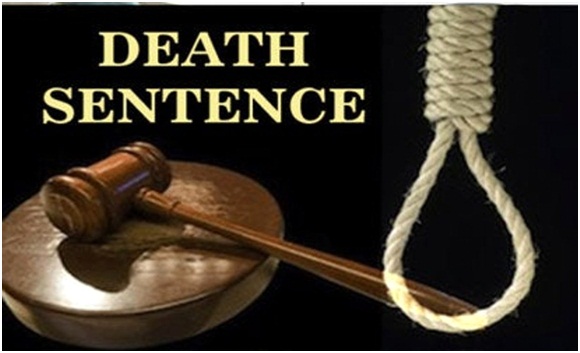Naira and the ‘butterflies in its stomach’
By Busuyi Mekusi
|
Money, as a legal tender, is one of the crystallisations of capitalism, with the dethronement of cowries that formed the traditional economic exchanges consigned to the waste bin, in the order of most of the profiting communal practices that got replaced by modern elements that serve the selfishness of the few and the greed of a handful. The pre-colonial period also had some other cultures using items like manilas, beads, bottles and salt, among others, as means of exchange. The past remains a pleasant aspect of human evolutions, just that the rustic nature of the details is reproachable by the glamour of technologically-driven development and sophistication-laden discoveries. Political economy across the world has also predicated the values of currencies on the economic activities that drive trade, investment and contribution to the global market, for effective participation and economic denomination.
The naira currency adopted by Nigeria in 1912 and later 1959, as part of decolonisation that shut out Shillings, Pence and Pound, unseated the 1880 ordinance that gave rise to the latter. The resolve of the Nigeria government to change from the metric to decimal in 1973 introduced naira and kobo to dislodge the British classification in Pounds. The introduction of a new note carrying the value of N20 in 1977, emplacement of new currency banknotes of N1, N5, and N10 preceded the introduction of N100, N200, N500 and N1000 in 1999, 2000, 2001 and 2005 respectively, which responded to the expansion of economic activities and the need to facilitate efficient payment, and similarly critically reinforced the localisation or domestication of monetary identity in the country. Even though there were other changes in the currencies of Nigeria, particularly the conversion of some notes to polyester, the changing of the colours of the banknotes in circulation, apart from 50 kobo, in 1984 to prevent trafficking reminds us of the inseparability between money and different shades of criminality.
After the nationalisation that got Nigeria her own banknotes, the naira competed fairly with other western currencies like the British pound sterling and America dollar, as the local industries were there to meet the yearnings of Nigerians. The ‘being-to’ dispensation of Nigerians sent abroad to acquire education and return to replace colonial expatriates did not drain the resources of the nation, due to negatively-skewed expenditures, unlike the contemporary ‘japa’ descendants that are victims of forced emigration, that is precipitated by awful economy and unending insecurity. The recession of critical infrastructures like electricity, roads, rails, etc., gradually but sustainably led to the death and dearth of industries that could absorb the huge graduates turned out of higher institutions of learning. Military interference in governance was the straw that broke the camels’ back, until emptiness took over manufacturing companies that relocated to neighbouring African nations, owing to the inability of Nigerian governments to provide the needed space for eventful economic development.
With corruption also diminishing national commonwealth, scarce foreign earnings from crude oil were blindly stolen by successive dictatorial regimes and political players, typified by Sani Abacha, the one-time transmuting Head of State that was alleged to have trafficked close to $3.65bn, which are still being repatriated by countries like Britain and America that priggishly housed the stolen monies, only to return it with attached conditions, after using it to inappropriately develop their economies. The moralistic hegemonic posturing of these countries is suggestive of a guilty heist collaborator assuming the place of a judge in adjudicating over possible culpability of other culprits. With increased dependence on foreign goods and services, such as medical and educational, the naira has been under tremendous pressure, leaving too much naira to chase few dollars in circulation.
In 2015 when the PMB administration took over, the average rate of $1 USD was 197.8763 NGN. However, due to rumoured dollarisation and warehousing of stolen monies to avoid the prying eagle eyes of Buhari, who was believed would fight corruption as he did during his military days, coupled with other global economic challenges like COVID-19 and Russia invasion of Ukraine, the naira has crashed in value that $1 dollar is now exchanging for N875 in November, 2022. In the face of shrinking resources from the monolithic crude oil as a result of monumental thefts, and acute shortages occasioned by non-conventional saving methods, the inflated and depreciated naira is left at the mercy of exchanging for few hard currencies to service the needs of Nigerians who are habitually given to foreignness or compulsively made to seek better health care or education overseas. One of the un-kept promises of the PMB government is the reversal of medical tourism, as he has spent some good times to undergo medical check-ups and care in United Kingdom.
With the fixing of the naira defying all the logics displayed by the Governor of the Central Bank of Nigeria (CBN), Godwin Emefiele, who contemplated seeking the APC presidential ticket before the odds against him dampened the illumination, the inflationary rate for food was 23.12 percent in August 2022, while the interest rate as at September 2022 was 15.50 percent. Ironically, the positivism of the acclaimed GDP of Nigeria in Q2 2022 put at N45 trillion and with a GDP growth of 3.54% has not positively enhanced the economic powers of Nigerians whose purchasing powers have been substantially vitiated by a weak naira. This is more so as the prices of foods, commodities and basic necessities have ballooned unreasonably. Power supply for production initiatives is a mirage, as alternative supply of power through the use of diesel-powered engines has sent so many companies and corporations out of operation, due to the high cost.
As the unmitigated fall of the value of the naira continues, the most recent approach taken on the management of the naira through the redesigning of some denominations is considered mere lacklustre shout in the wilderness. Although the CBN Governor has argued that the redesigning of the naira would help; bring back large volumes of money circulating outside the banking system (particularly ‘people with illicit money buried under the soil’), reduce inflation, mitigate currency counterfeiting, curb insecurity, and tame worsening shortage of clean and fit currency, the reality is that people with buried naira notes may have to change it to foreign currencies, thereby putting further pressure on the weak naira. Amidst needless controversy generated by the open challenge of the autonomous authority of the CBN Governor to take the decision of redesigning some naira notes without making recourse to her office by the Minister of Finance, Budget and National Planning, Zainab Ahmed, Nigerians have been reminded that the CBN has both operational and administrative independence to carry out its exercise, requiring only presidential approval. Painfully, one wonders why a house should be divided against itself!
As frivolous or spurious as some may consider it, some opposition politicians, like the Edo State Governor, Godwin Obaseki, have argued that the redesigning of the naira is targeted at opposition party for the purpose of elections. While some watchers are of the opinion that the development is meant to financially emasculate opposition political parties from accessing liquid cash, some have posited that the rebranding is desirable enough to help curb vote-buying in the 2023 elections. Even though these arguments might at best be at the realm of postulations or propositions, it is not clear how the redesigning would help take away the ‘butterflies in the stomach’ of the naira, or help it to cure the stage fright that has subjugated it before foreign currencies, like the dollar and pound sterling. Is God winning for Emefiele or Obaseki in their contestations?
Metaphoric of the anxieties of Nigerians about the debilitating economic instability that has impoverished them, to have butterflies in one’s stomach idiomatically indicates that one is anxious, and have a nervous feeling in one’s stomach. In the acting world of arts and artistic engineering, one could be afflicted with stage fright to the extent that performance would be impaired. Although this could be cured through means that include self-treatment and medical care, both stage fright, which is an anxiety or panic caused by the thought of performing, and butterflies in one’s stomach are ordinarily disempowering and suppressing, as found in the naira.
Characteristic of the predilections of some religious bigots in Nigeria who would play ethno-religious politics with virtually everything, including sensitive security matters, some have clamoured for the retention of the Arabic inscriptions on naira notes, as if that would cure it of needless depreciation. Undoubtedly, Nigeria must be true to her constitution that prescribes secularity, which means no religion would be favoured over others in the country. The continued retention of religious totems in national assets and insignias is nonetheless nepotistic and provocative, even at a time when Muslim-Muslim presidential ticket paraded by the ruling party is being explained away.
As Afénifére embarks on self interrogation and purgation, wallowing in the murky waters of political endorsement, all Nigerians, just like the naira, have got butterflies, hoping that the naira would not become another ‘Zimbabwean dollar’, ultimately!










